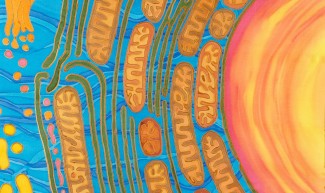Dyskinesias are rare diseases characterised by sudden, involuntary movements that can affect the whole body. Two years ago, the team of Prof. Flamand-Roze and Dr. Méneret at the Paris Brain Institute and the neurology department of the Pitié-Salpêtrière Hospital AP-HP published the case of a child suffering from a form of the disease linked to the ADCY5 gene. This young patient was able to return to a normal life thanks to coffee. In a collaborative study, the same team has just confirmed this result by collating data from 30 patients worldwide who were also treated with coffee. 87% of them saw their symptoms improve significantly. This result could, according to the researchers, be explained by the fixation of coffee in the striatum, a deep region of the brain that is crucial for the control of movement. Their discovery, published in the journal Movement Disorders, could pave the way for the development of new treatments for movement disorders.
Dyskinesias are a group of rare disorders characterised by sudden, involuntary movements that can affect the whole body. One of the causes of this condition is a mutation in the ADCY5 gene, which starts mainly in childhood. These abnormal movements are often exacerbated in the form of paroxysmal movement disorders that can occur during the day, but also at night. Despite numerous explorations of the potential benefits of drug treatments, until recently no treatment has been confirmed to be effective in this condition.
Two years ago, a long-standing study by Prof. Emmanuel Flamand-Roze and Dr. Aurélie Méneret highlighted the benefit of caffeine on the symptoms of a child suffering from dyskinesia associated with the ADCY5 gene mutation. In order to confirm these results, the team from the Paris Brain Institute, the neurology department of the Pitié-Salpêtrière AP-HP hospital and Inserm conducted a retrospective study on a worldwide scale. The researchers were able to collect data from 30 patients affected by this rare condition who had consumed or were still consuming coffee for their dyskinesia.
Their results show that, in addition to a good tolerance of caffeine intake, including in children, 87% of patients reported a clear improvement in their motor symptoms. Coffee consumption not only reduced the frequency and duration of paroxysmal movement disorders, but also reduced their baseline movement disorders, as well as other symptoms such as gait, attention and concentration disorders, certain types of pain or hypotonia, with a notable improvement in the patients’ quality of life. This retrospective study thus confirms the potential of caffeine as a first-line treatment in this form of dyskinesia.
The efficacy of coffee can be explained by the fact that caffeine binds to adenosine receptors that modify the function of the dysfonctional protein (ADCY5). The latter is strongly located in the striatum of the brain, which is involved in motor control. Researchers and clinicians at the Paris Brain Institute are currently exploring the interest of the cyclic adenosine monophosphate (cAMP) pathway as a therapeutic target in this disease and more widely in pathologies associated with hyperkinetic movements.
Sources
https://pubmed.ncbi.nlm.nih.gov/35384065/
Méneret A, Mohammad SS, Cif L, Doummar D, DeGusmao C, Anheim M, Barth M, Damier P, Demonceau N, Friedman J, Gallea C, Gras D, Gurgel-Giannetti J, Innes EA, Necpál J, Riant F, Sagnes S, Sarret C, Seliverstov Y, Paramanandam V, Shetty K, Tranchant C, Doulazmi M, Vidailhet M, Pringsheim T, Roze E.Mov Disord. 2022 Apr 5.







